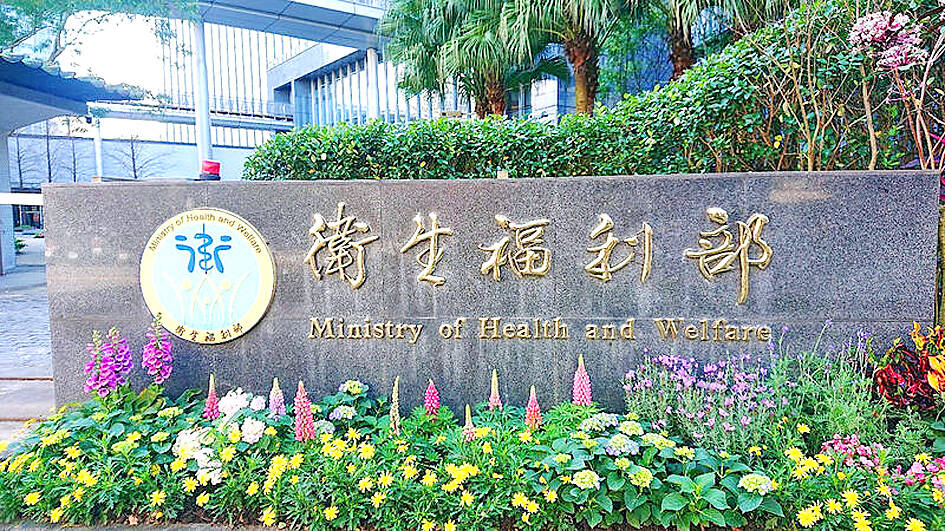The Executive Yuan yesterday decided to maintain the total medical student enrollment quota at 1,300 per year, following a backlash from civil associations over an earlier plan to increase it.
Last month, the Ministry of Education unveiled a plan to change the annual government-funded student enrollment quota for post-baccalaureate medical departments of three universities from 23 to 35 self-funded students each.
The three universities are: National Tsing Hua University, National Chung Hsing University and National Sun Yat-sen University.

Photo: CNA
The ministry also planned to remove the medical student enrollment quota of the National Defense Medical Center (NDMC) from the total medical student quota.
Currently, the total medical student enrollment quota is capped at 1,300 per year, but the ministry’s plan could increase it to about 1,600 per year.
Eleven medical associations on Thursday last week issued a joint statement, accusing the ministry of contravening the total quota control principle, and saying that the problem is not a shortage of physicians, but an uneven distribution of them in hospital departments.
On Sunday, 29 medical associations led by the Taiwan Medical Association issued a joint statement, expressing their opposition to the plan.
They said it has been a long-term consensus that the NDMC’s medical student enrollment quota is included in the total quota, and the quota of the post-baccalaureate medical students at the other three universities were established in 2022 under a government-funded physicians training program for key specialties.
“The cap of 1,300 people is not only a number, but a symbol of institutional balance and medical quality,” they said, adding that disrupting the system might have negative effects on people’s health.
The government cannot solve problems such as physicians’ high workload and workforce shortages in remote areas by only enrolling more medical students, which might strain educational resources and worsen training quality, they said.
The Cabinet and associations reached a consensus yesterday morning.
Premier Cho Jung-tai (卓榮泰) held the meeting, which was also attended by Minister of Health and Welfare Chiu Tai-yuan (邱泰源), Department of Medical Affairs Director-General Liu Yueh-ping (劉越萍), Minister of Education Cheng Ying-yao (鄭英耀), Department of Higher Education Director-General Liao Kao-hsien (廖高賢) and other officials.
The Taiwan Medical Association yesterday in a statement said that it strongly affirmed the Executive Yuan’s decision, thanking it for promptly holding a meeting to discuss the issue.
“The association thanks the government for being willing to listen to our voices through rational and peaceful communication and negotiation, and protecting Taiwan’s medical quality and people’s rights,” it said.

The manufacture of the remaining 28 M1A2T Abrams tanks Taiwan purchased from the US has recently been completed, and they are expected to be delivered within the next one to two months, a source said yesterday. The Ministry of National Defense is arranging cargo ships to transport the tanks to Taiwan as soon as possible, said the source, who is familiar with the matter. The estimated arrival time ranges from late this month to early next month, the source said. The 28 Abrams tanks make up the third and final batch of a total of 108 tanks, valued at about NT$40.5 billion

Two Taiwanese prosecutors were questioned by Chinese security personnel at their hotel during a trip to China’s Henan Province this month, the Mainland Affairs Council (MAC) said yesterday. The officers had personal information on the prosecutors, including “when they were assigned to their posts, their work locations and job titles,” MAC Deputy Minister and spokesman Liang Wen-chieh (梁文傑) said. On top of asking about their agencies and positions, the officers also questioned the prosecutors about the Cross-Strait Joint Crime-Fighting and Judicial Mutual Assistance Agreement, a pact that serves as the framework for Taiwan-China cooperation on combating crime and providing judicial assistance, Liang

A group from the Taiwanese Designers in Australia association yesterday represented Taiwan at the Midsumma Pride March in Melbourne. The march, held in the St. Kilda suburb, is the city’s largest LGBTQIA+ parade and the flagship event of the annual Midsumma Festival. It attracted more than 45,000 spectators who supported the 400 groups and 10,000 marchers that participated this year, the association said. Taiwanese Designers said they organized a team to march for Taiwan this year, joining politicians, government agencies, professionals and community organizations in showing support for LGBTQIA+ people and diverse communities. As the first country in Asia to legalize same-sex

MOTIVES QUESTIONED The PLA considers Xi’s policies toward Taiwan to be driven by personal considerations rather than military assessment, the Epoch Times reports Chinese President Xi Jinping’s (習近平) latest purge of the Chinese People’s Liberation Army (PLA) leadership might have been prompted by the military’s opposition to plans of invading Taiwan, the Epoch Times said. The Chinese military opposes waging war against Taiwan by a large consensus, putting it at odds with Xi’s vision, the Falun Gong-affiliated daily said in a report on Thursday, citing anonymous sources with insight into the PLA’s inner workings. The opposition is not the opinion of a few generals, but a widely shared view among the PLA cadre, the Epoch Times cited them as saying. “Chinese forces know full well that